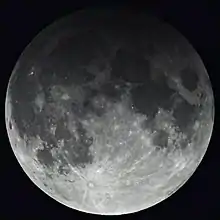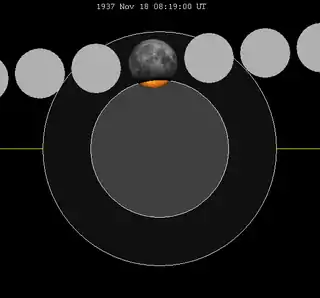
A partial lunar eclipse took place on Thursday, November 18, 1937, the second of two lunar eclipses in 1937. This event took place near perigee, and as described, such event was known as a supermoon.
Visibility
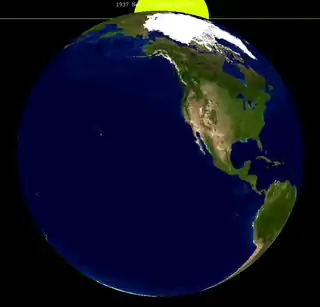
Related lunar eclipses
| Ascending node | Descending node | |||||
|---|---|---|---|---|---|---|
| Saros | Date Viewing |
Type Chart |
Saros | Date Viewing |
Type Chart | |
| 110 | 1937 May 25 |
Penumbral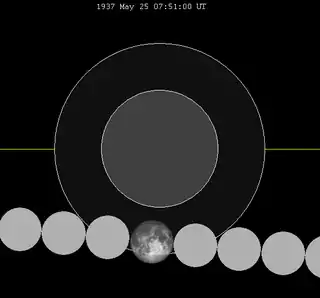 |
115 | 1937 Nov 18 |
Partial | |
| 120 | 1938 May 14 |
Total |
125 | 1938 Nov 07 |
Total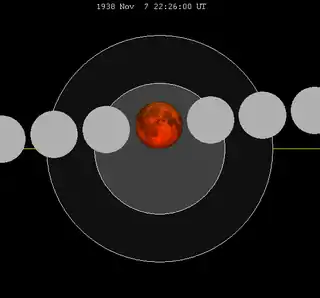 | |
| 130 | 1939 May 03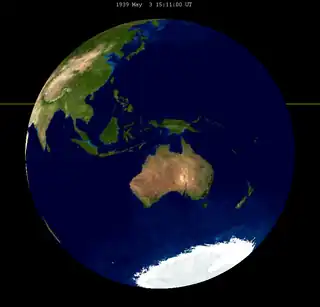 |
Total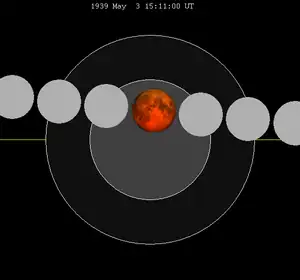 |
135 | 1939 Oct 28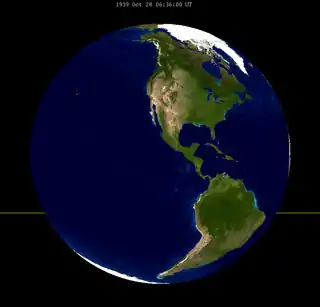 |
Partial | |
| 140 | 1940 Apr 22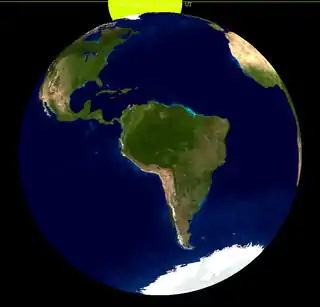 |
Penumbral |
145 | 1940 Oct 16 |
Penumbral | |
Half-Saros cycle
A lunar eclipse will be preceded and followed by solar eclipses by 9 years and 5.5 days (a half saros).[1] This lunar eclipse is related to two partial solar eclipses of Solar Saros 122.
| November 12, 1928 | November 23, 1946 |
|---|---|
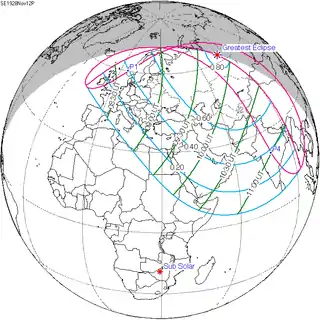 |
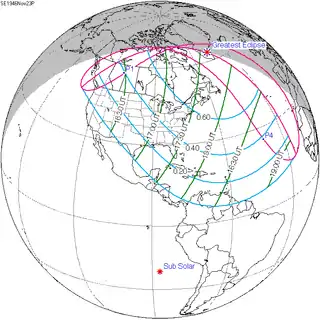 |
See also
Notes
- ↑ Mathematical Astronomy Morsels, Jean Meeus, p.110, Chapter 18, The half-saros
External links
- 1937 Nov 18 chart Eclipse Predictions by Fred Espenak, NASA/GSFC
This article is issued from Wikipedia. The text is licensed under Creative Commons - Attribution - Sharealike. Additional terms may apply for the media files.

_(cropped).jpg.webp)
